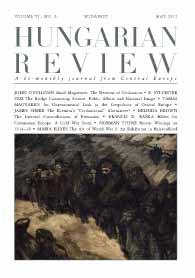Hierarchy in Moldova-Russia Relations: the Transnistrian Effect
Hierarchy in Moldova-Russia Relations: the Transnistrian Effect
Keywords: Moldova; Transnistria; Russia; Westphalian sovereignty; hierarchical sovereignty
This article examines the effect of the Transnistrian area on Moldova-Russia relations. David Lake’s concept of hierarchy will be used as the theoretical framework. The article examines why Russia’s mechanisms of influence should not be seen as a reflection of a hierarchical relationship between Russia and Moldova. The article begins by explaining why this work has chosen a hierarchical framework and a brief introduction of Transnistria. This is followed by two sections of analysis: security and economy. These two sections will also contain subsections on events that highlight the hierarchical nature of the Moldova-Russia relationship. This article shows that Russia clearly has a hierarchical relationship with Moldova. David Lake’s theory proves to be a useful tool in understanding Moldovan-Russian relations.
More...
